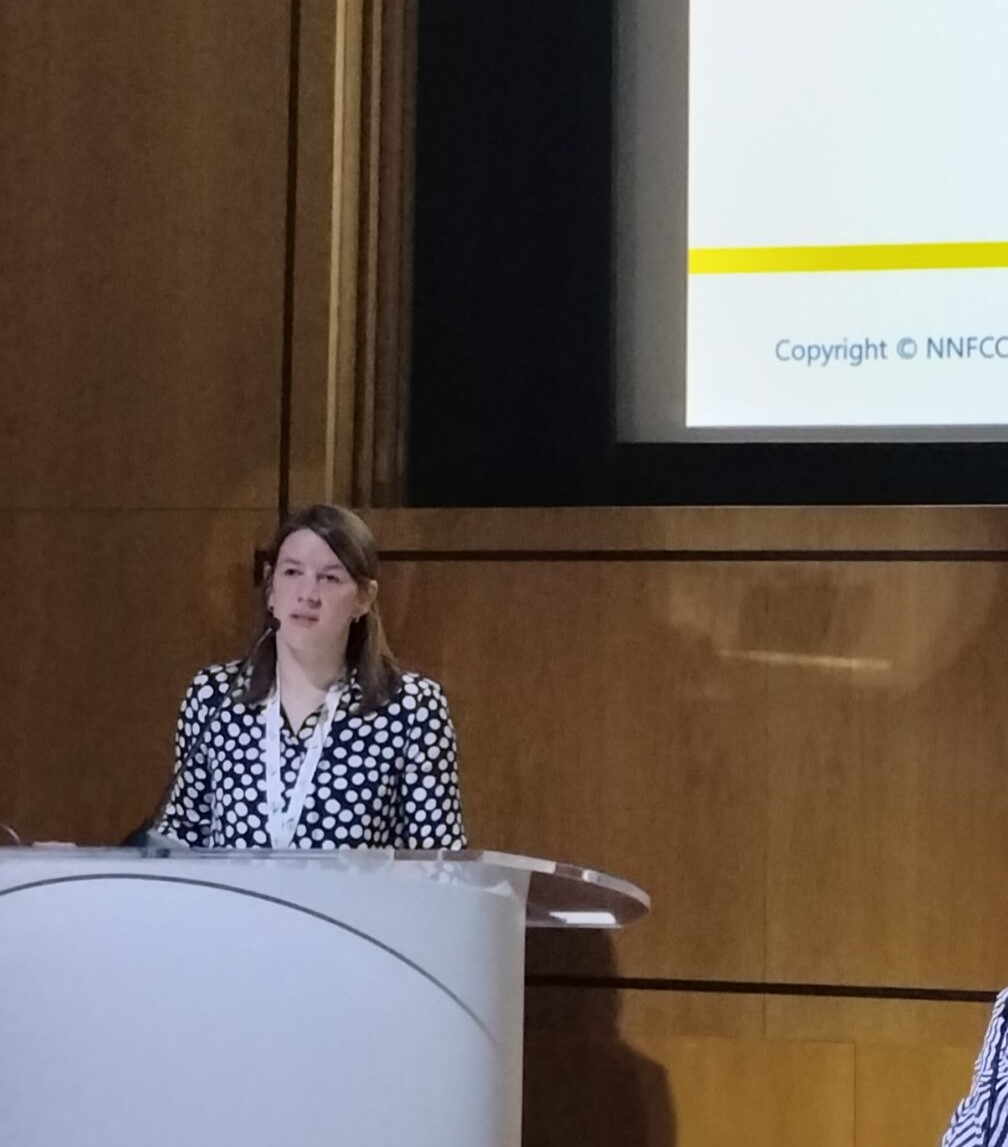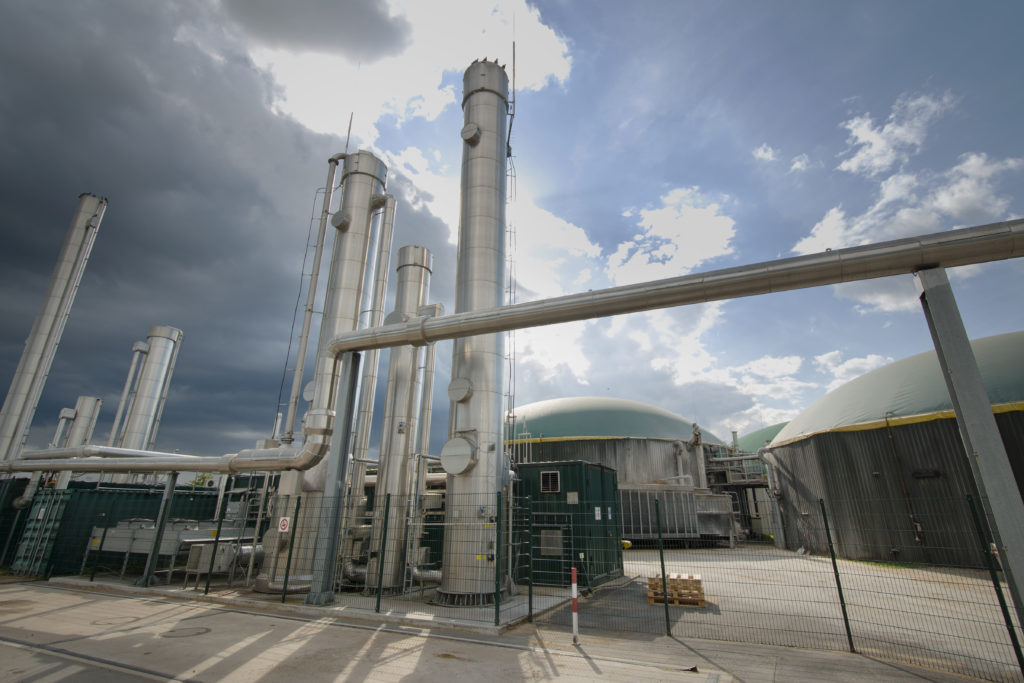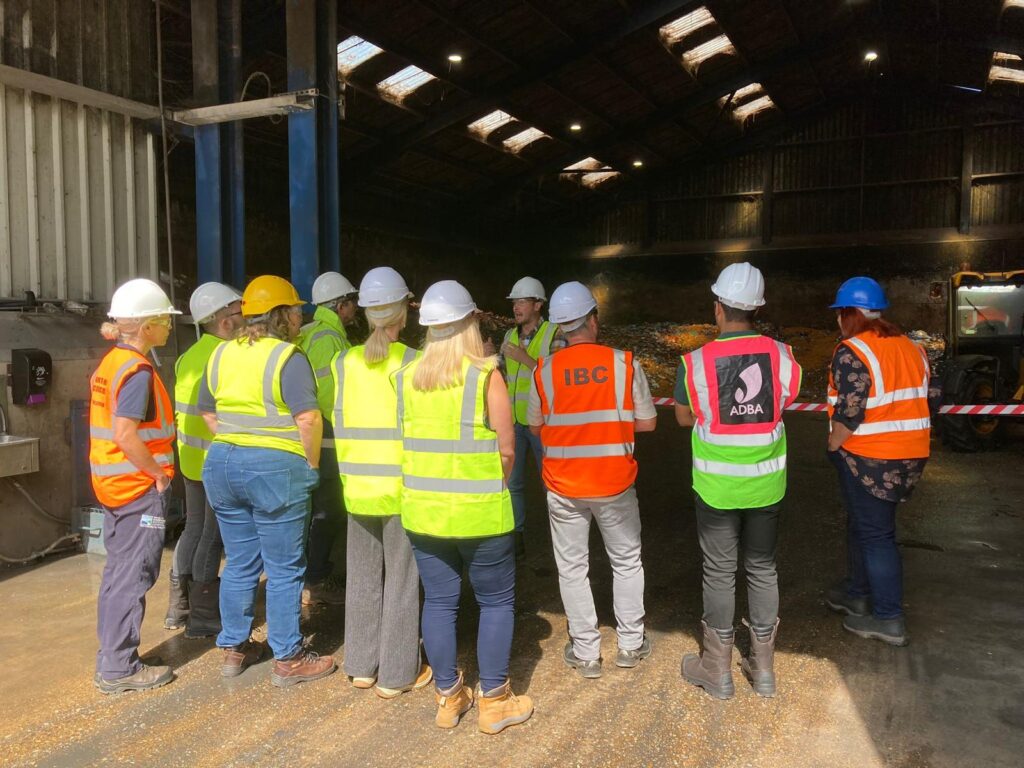The Green Gas Support Scheme was set up in 2021 to provide tariff support for biomethane produced via AD, which is the government’s preferred method for processing food waste. It was originally meant to last four years but could be extended.
Speaking at letsrecycle.com‘s National Food Waste Conference yesterday, 9 March, Lucy Hopwood said while the scheme is narrow in scope, it is subject to a mid-scheme review which is set to look at its eligibility criteria and structure. Ms Hopwood is lead consultant for bioenergy and AD at National Non-Food Crops Centre (NNFCC).
She added that new AD capacity can be eligible for support, but this would not stretch to expansion or conversion of existing facilities or any other output from AD other than biomethane injection (BI) into the grid. This could be important as some facilities may need to upgrade once more local authorities begin collecting food waste from 2024/25.
NNFC’s lead consultant added that policy tends to favour BI for various reasons. Biomethane injection is an alternative method to combined heat and power (CHP). Methane is separated from other gases, which can then be used as a vehicle fuel or injected into the gas grid.

Ms Hopwood further noted that BI plants “better align with the policy focus of decarbonising the gas grid and thereby the heat sector as well as transport fuels”. They also have a greater output capacity compared to CHP facilities and are more efficient. This is illustrated by the fact that while they currently comprise only about 15% of the market, “25-30% of the market’s production capacity is coming from BI plants”.
Pipeline
She went on to say that “support for CHP development has disappeared and most of those facilities are unlikely to go ahead without any future support.” She reasoned that this is because the industry’s “not yet ready to stand alone without support – the technology is quite expensive and prices volatile, there’s too much investment risk”.
There are 244 projects in the pipeline in the UK but Ms Hopwood noted that an estimated 50% of the consents have expired because they were granted more than 3-5 years ago and haven’t been activated. “But there’s still a sizable pipeline of projects in the system ready to go if feedstock, funding and support are available to give the security to the market,” she added.
According to Ms Hopwood, there are 39 BI facilities in the pipeline of projects with planning consents. “11 of those have secured a tariff guarantee on the Green Gas Support Scheme. The other 28 may or may not go ahead depending on whether they can secure feedstock and funding,” she outlined. “If all 39 go ahead, that would add an additional 2 million tonnes of capacity to the industry, if the 11 go ahead when they’re commissioned, that’ll add about half a million tonnes capacity,” Ms Hopwood concluded.












Subscribe for free